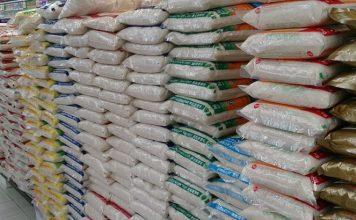Kabir Ibrahim, the President of the All Farmers Association of Nigeria, revealed that imported rice from India comes at a landing cost of $58 per bag.
From the news gathered, in Lagos, Ibrahim stated that local rice was cheaper because of the country’s high exchange rate.
“It is not competitive for you to use forex to buy anything and bring it to Nigeria. The cheapest rice in the world comes from India; the landing cost of one bag of 50kg of rice is $58 from India. When you calculate that with the current exchange rate, you will see that the landing cost is above N60,000 per bag of rice; that is to Lagos.
“So, when you start distributing with the local transport and all that, you cannot compete with what is sold in Nigeria,” Ibrahim noted.
Ibrahim, who is also the President of Nigeria Agribusiness Group, noted that the cost of bringing maize from Brazil into the country was higher than sourcing it locally.
“The cheapest maize you can find is yellow corn from Brazil. I used to be the president of the poultry association. Before now, we used to import maize from Brazil because the voyage time was two weeks. If you buy from the United States of America, it takes six weeks.
“So, you buy from the closest place to you, but today the landing cost is such that you won’t be able to compete with the locally produced one,” he explained.
Meanwhile, Nasiru Salami, the President of the Transborder Traders Association said, 70 percent of imported livestock into Nigeria came from the Niger Republic.
Salami claimed that trade that happened between Nigeria and other African countries was mostly done on a trade and barter basis.
Reacting to this, Ibrahim argued, “I am into livestock. Whoever said that to you is not sure of what he or she was talking about.
“There are some species of cattle that you can get from Niger Republic. They grow very big and they have these big horns.
“But if you come to poultry, I am a poultry farmer and I have a farm at the border in Katsina. I know that people from the Niger Republic come to buy eggs from us,” the AFAN president stated.
He stressed that most of the livestock slaughtered in Lagos is coming from the northern part of the country and not from the Niger Republic.
Ibrahim disclosed that the association was making a case for the cattle to be moved by wagons.
“They would be bringing them by rail so that they would not come tired and hungry and all that,” Ibrahim asserted.
Also, the Deputy Chairman, AFAN, Lagos Chapter, Shaki Agbeyewa, averred, “It is more advisable to buy those products in Nigeria than import them. Whatever you are buying from the time of production on the farm to the final consumption is in a circle of one year. So, it is wise to do it in Nigeria.
“The ones you are buying abroad stay for up to three years; some may have even expired, and they will still bring them to Nigeria. It is better to buy in Nigeria because of the economic benefits than to import,” Agbeyewa stated.
